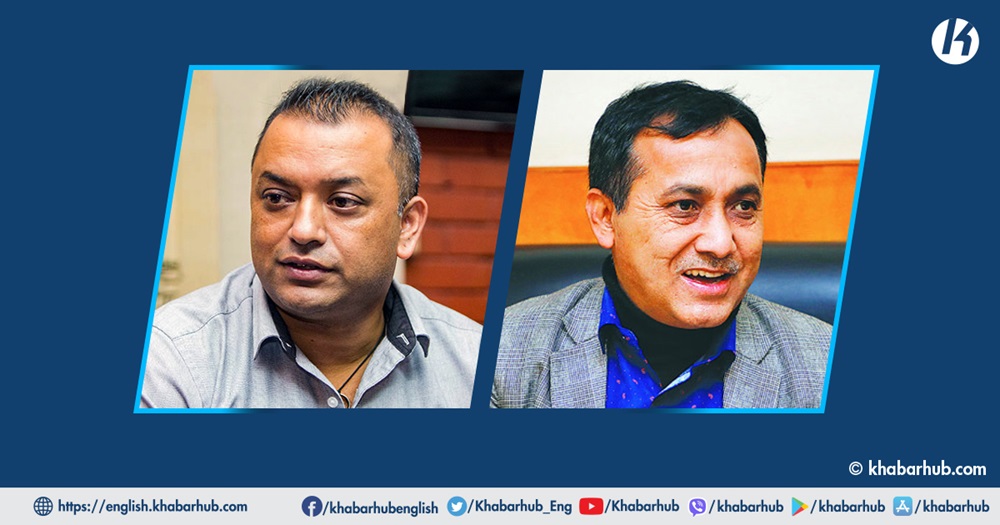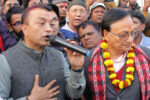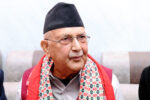KATHMANDU: The issue of the “magic number” continues to stir tension among Nepal’s political leaders.
Nepali Congress General Secretary Gagan Thapa has voiced concerns about the difficulties in forming a stable government when no party can secure an outright majority.
He questioned whether pre- or post-election agreements could truly ensure the necessary majority, noting that such deals often lose their relevance once elections are concluded.
Similarly, fellow General Secretary Bishwaprakash Sharma has proposed a constitutional amendment to ensure that only the largest party—based on seat count and popular votes—can govern, effectively excluding smaller parties from the equation.
Both Thapa and Sharma emphasize the need for a new electoral system that guarantees a majority for a single party, a shift that would require constitutional changes.
This concern has become more urgent following the 2079 House of Representatives election, in which the Nepali Congress, despite being the largest party, could not form a government on its own.
General Secretary Sharma has echoed this sentiment, proposing that when discussing constitutional amendments, there must be an in-depth debate on the feasibility of a system where a single party, based on its seat count and popular votes, can govern without the involvement of smaller parties.
The CPN-UML, the second-largest party, took the lead in forming a government, but power dynamics remained fluid, with CPN-Maoist Center’s Pushpa Kamal Dahal ‘Prachanda’ aligning alternately with Nepali Congress and UML, creating instability.
In response to the political turbulence caused by shifting alliances, Nepali Congress and UML forged an alliance aimed at amending the constitution to stabilize the political system.
The two parties’ agreement stressed the need for constitutional reforms to establish a stable government, one that does not rely on the fluctuating “magic number” of smaller parties.
However, despite the alliance, there has been no significant progress in discussing or implementing constitutional amendments, even six months after the government was formed.
The second pof the agreement: Political stability and constitutional amendments
The second point of the agreement between the Nepali Congress and the UML stated that the government of national consensus would review the strengths, weaknesses, and complexities that have emerged since the constitution came into effect, with a focus on necessary amendments and the formulation of laws for political stability.
Nearly six months have passed since the two largest parties in Parliament, the Congress and the UML, formed a government under the leadership of UML Chairman KP Sharma Oli, aiming to amend the constitution for political stability.
However, no formal discussions have yet been initiated between the parties, either within or outside Parliament, regarding constitutional amendments.
At this stage, the General Secretaries of Congress, Thapa and Sharma, have begun publicly addressing the need for constitutional amendments.
Initially, their focus has been on ensuring that the largest party in Parliament can govern for a full five-year term without relying on smaller parties holding the “magic number” to form coalitions.
Proposal to make popular vote winner the Prime Minister
General Secretary Thapa has emphasized that the Constitution should be amended to allow the party that wins the popular vote to run the government for five years.
Thapa proposed a solution to the ‘magic number’ issue, suggesting, “Let the UML form a single-party government for five years if they are popular and the people support them. If the Maoists gain enough support, let them lead. Let Congress understand that this is how the constitution should function. Let’s clarify this issue firmly and dispel any misconceptions.”
General Secretary Sharma has echoed this sentiment, proposing that when discussing constitutional amendments, there must be an in-depth debate on the feasibility of a system where a single party, based on its seat count and popular votes, can govern without the involvement of smaller parties.
In a television interview, Sharma said, “If we are to open the door to amending the constitution, we must debate what a system of one person serving as Prime Minister for five years would look like. I have already proposed that only the largest party, based on the number of seats and popular votes, should be allowed to run the government.”
Similarly, at a ‘Provincial-Level One-Day Orientation Program’ organized by the Gandaki Province Working Committee of Nepali Congress in Pokhara recently, Thapa emphasized that the electoral system should be amended to enable the party with the popular vote to govern for five years.
Thapa noted, “While coalition governments can work, there is a tradition that doesn’t always suit our context. The party that receives the popular vote should be allowed to govern for five years.”
Earlier, Thapa had shared his desire for constitutional amendments at a program in Hetauda.
He urged party leaders and workers to understand and explain the proposed changes to the grassroots level, emphasizing the need for a system that allows a single party to lead for five years.
Thapa expressed his concern over the instability caused by coalition governments, stating, “No matter how strong a party is, it will not be able to govern for five years without making deals. Whether before or after the election, agreements are made out of necessity when no party has a majority. This is where the ‘magic number’ problem arises—without major agreements, there will always be small ones.”
He envisions a system where these experts can be appointed as members of the Council of Ministers, thus strengthening the Prime Minister’s position. “Let’s open the door to making them ministers,” Sharma remarked in an interview.
Thapa proposed a solution to the ‘magic number’ issue, suggesting, “Let the UML form a single-party government for five years if they are popular and the people support them. If the Maoists gain enough support, let them lead. Let Congress understand that this is how the constitution should function. Let’s clarify this issue firmly and dispel any misconceptions.”
Bishwaprakash’s theory
General Secretary Sharma has proposed a solution to ensure a majority for the largest party, based on seat count and popular vote, to form a stable government for five years.
He suggests that if the leading party fails to secure the required number of seats, the constitution could include a provision granting an additional 25 seats, in line with his “Winner Takes All” theory.
Sharma explained, “If the leading party doesn’t achieve a simple majority based on seats and popular votes, we should provide it with the remaining 25 seats that it did not secure. However, those who lost in the election will not be brought in.”
He further clarified, “These 25 seats would be registered with the Election Commission, allowing the party to form a majority and establish a government.”
Sharma’s proposal also involves nominating experts from various sectors—such as geology, climate change, and infrastructure—to these additional 25 seats.
He envisions a system where these experts can be appointed as members of the Council of Ministers, thus strengthening the Prime Minister’s position. “Let’s open the door to making them ministers,” Sharma remarked in an interview.
“We can create a stronger Prime Minister by building trust and enhancing hope.”









Comment